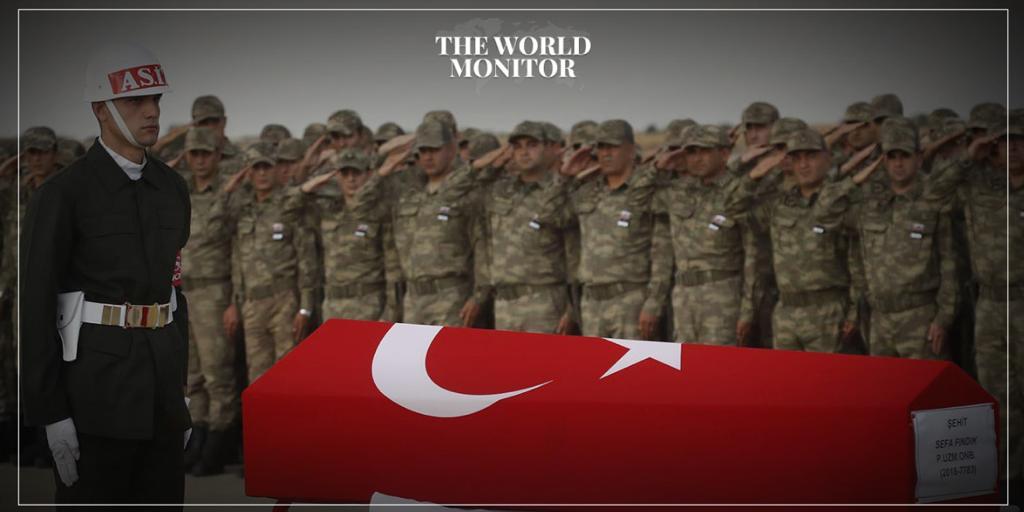Turkey announced on Saturday the death of one of its soldiers due to injuries sustained from an explosion of an improvised explosive device (IED) in northern Iraq. The Turkish Army is currently conducting military operations against Kurdish militants in the region.
The Turkish Ministry of Defense released a statement along with a picture of the deceased soldier, identified as Arkan Seljuk. The ministry added that Seljuk was “seriously wounded due to the explosion of a handmade IED planted by elements of the Kurdistan Workers’ Party (PKK).”
The incident occurred in the operational area of “Claw-Lock,” on August 25. The ministry also noted that the injured soldier was transported to the hospital but succumbed to his injuries.
In recent days, the Turkish Army has carried out several attacks against the PKK in northern Iraq, resulting in the death and injury of five other Turkish soldiers.
It should be noted that Turkey has launched a military operation named “Claw-Lock” aimed at targeting PKK strongholds in northern Iraq. Multiple areas in Iraq’s Kurdistan region have been subject to recurring Turkish bombardments, which Ankara justifies as necessary for combating the PKK.
While Turkey justifies its military operations within Iraqi territory, Baghdad rejects them and considers them a violation of Iraqi sovereignty.
The death of the Turkish soldier adds another layer to the complex and fraught relationship between Turkey and Iraq, especially concerning Ankara’s military presence in northern Iraq. This incident is likely to escalate tensions further and raise questions about the long-term impacts of Turkey’s military operations in the region.
Turkey has been involved in a longstanding conflict with the Kurdistan Workers’ Party (PKK), a group designated as a terrorist organization by Turkey and various other countries. Turkish military operations have extended into northern Iraq, where PKK militants are known to have bases. These operations have been a source of tension between Turkey and Iraq, as Baghdad views them as a violation of its sovereignty.






